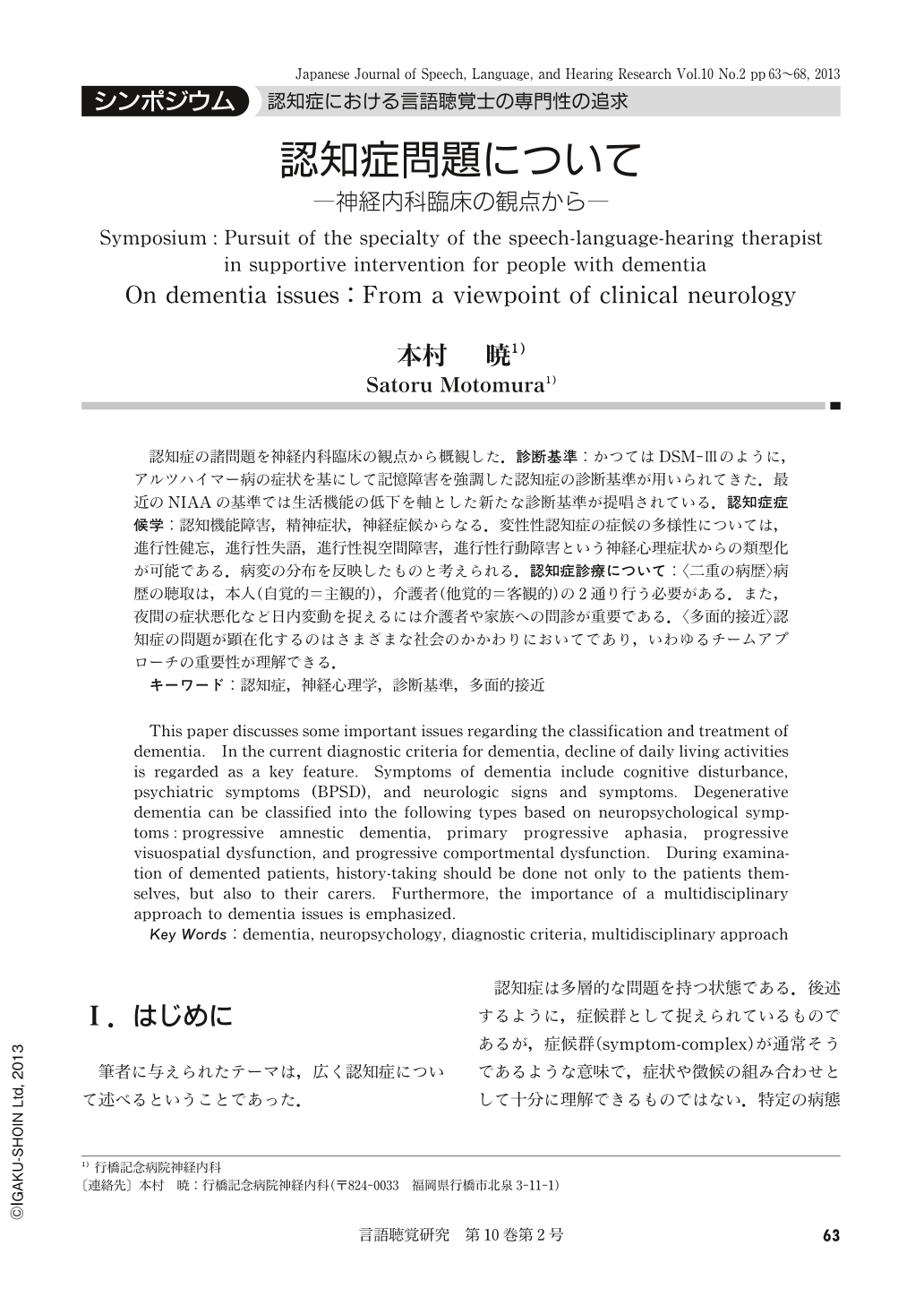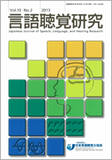Japanese
English
- 有料閲覧
- Abstract 文献概要
- 1ページ目 Look Inside
- 参考文献 Reference
認知症の諸問題を神経内科臨床の観点から概観した.診断基準:かつてはDSM-Ⅲのように,アルツハイマー病の症状を基にして記憶障害を強調した認知症の診断基準が用いられてきた.最近のNIAAの基準では生活機能の低下を軸とした新たな診断基準が提唱されている.認知症症候学:認知機能障害,精神症状,神経症候からなる.変性性認知症の症候の多様性については,進行性健忘,進行性失語,進行性視空間障害,進行性行動障害という神経心理症状からの類型化が可能である.病変の分布を反映したものと考えられる.認知症診療について:〈二重の病歴〉病歴の聴取は,本人(自覚的=主観的),介護者(他覚的=客観的)の2通り行う必要がある.また,夜間の症状悪化など日内変動を捉えるには介護者や家族への問診が重要である.〈多面的接近〉認知症の問題が顕在化するのはさまざまな社会のかかわりにおいてであり,いわゆるチームアプローチの重要性が理解できる.
This paper discusses some important issues regarding the classification and treatment of dementia. In the current diagnostic criteria for dementia, decline of daily living activities is regarded as a key feature. Symptoms of dementia include cognitive disturbance, psychiatric symptoms (BPSD), and neurologic signs and symptoms. Degenerative dementia can be classified into the following types based on neuropsychological symptoms:progressive amnestic dementia, primary progressive aphasia, progressive visuospatial dysfunction, and progressive comportmental dysfunction. During examination of demented patients, history-taking should be done not only to the patients themselves, but also to their carers. Furthermore, the importance of a multidisciplinary approach to dementia issues is emphasized.

Copyright © 2013, Japanese Association of Speech-Language-Hearing Therapists. All rights reserved.


